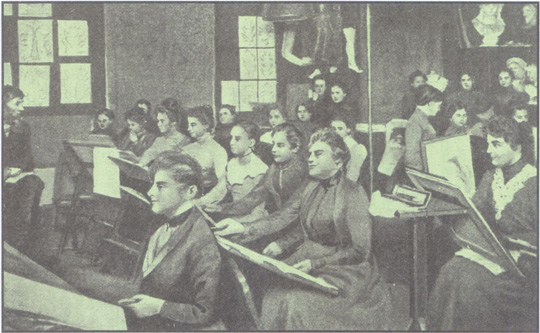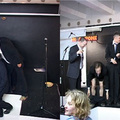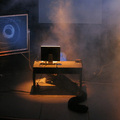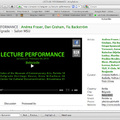The original 'Flying University' in Poland began in 1883 and existed until 1905, when it was made semilegal and became known as the TKN (Buczynska-Garewicz 1985). There were no campuses, land or buildings, and each class was held in a different private apartment, hence the name 'flying university'. The Flying University offered some of the first opportunities for women in Warsaw and Eastern Poland to attend higher education, and women made up about 70% of the student body. Between 1883 and 1905, about three thousand women received diplomas there. Classes were available to anyone regardless of gender or social status, but differed from those in regular universities in that they promoted self-directed learning because of the difficult conditions for instruction. One of the Flying University's more famous students was Marie Sklodowska Curie, the first woman to receive a Nobel prize, who studied sciences there after graduating from high school in 1883. © oise.utoronto.ca

© miastospoleczne.pl
Wikipedia
After the Second World War, the Wolna Wszechnica Polska was not immediately recreated in Warsaw, although its branch in Łódź served as the foundation for the University of Łódź.
During the time of communist domination in the People's Republic of Poland, as the curriculum became a tool of politics, and much of Polish history (like Polish-Soviet War, Katyn Massacre or Praga Massacre) was censored in an attempt to 'erase' the history of Polish-Russian conflicts[13], the tradition of the Flying University was revived once again, first by the Society of Free Polish University (Towarzystwo Wolnej Wszechnicy Polskiej) active in Warsaw from 1957, later from 1977 by the new Flying University and Society of Science Courses, supported by Polish dissidents: Stefan Amsterdamski, Andrzej Celiński, Bohdan Cywiński, Aldona Jawłowska, Jan Kielanowski, Andrzej Kijowski, Tadeusz Mazowiecki, Wojciech Ostrowski.
Many participants of this second flying university were abused by militsiya, with common incidents like a prominent dissident, Jacek Kuroń being thrown down the stairs or his apartment ransacked by militsiya-supported thugs; despite such harassment the Flying University was active until the imposition of martial law in Poland in 1981, designed to destroy Solidarity movement, stifled its activities too. With Solidarity's peaceful victory in the Polish legislative elections, 1989, the goals of the Flying University — the freeing of Polish education from party's control and censorship — have been achieved.
© wikipedia





